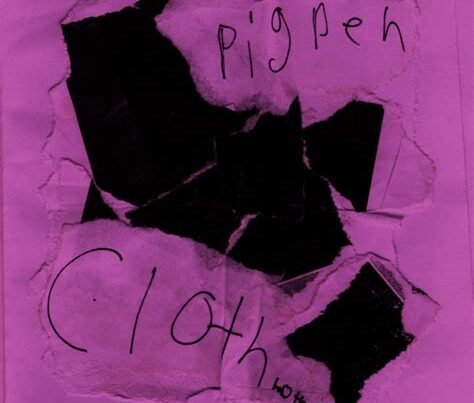Close this review and listen to Aura. I’m serious – no amount of rationalizing will capture you the way Hatis Noit herself does.
Release date: June 24, 2022 | Erased Tapes | Bandcamp | Facebook | Instagram | Twitter | Website
Trying to place Japanese vocal performer Hatis Noit into a neat lineage would be logical but ultimately pointless. Yes, there have been artists who used their voice as a most exquisite and diverse instrument before (the godmother of whom would be Meredith Monk, at least in the Western art music canon), and you can find traces of various traditions of vocal music in her work, ranging from the gagaku of her native Japan to European chanting of the Gregorian and Bulgarian varieties. None of these, however, sound anything like Hatis Noit does. In taking inspiration from various sources and transforming them into one unique approach, she has realized what many an artist claims to do but fails at spectacularly.
For more background on this rising star of the experimental music world, I would like to refer you to the WFA article I wrote about her a while ago. From this point onwards, we’ll be focusing on her new album Aura, which is far more deserving of our attention than yet another retread of background facts and figures anyway.
Aura, named after the concept coined by German philosopher Walter Benjamin, consists of eight compositions centered around the vocal performance of Hatis Noit, alongside some auxiliary instrumentation like piano on select tracks. She croons, wails, chirps, and coos, her voice an instrument more mellifluous than any the hands of man may devise. From operatic heights to the strong roots of indigenous traditions, her repertoire seems to be as limitless as the blue sky above, and the fact that she’s essentially an autodidact makes my head spin, just like the way she seamlessly weaves all these different strands into one magnificent aural tapestry.
Springing to life with its title track, Aura sees the artist harmonizing with herself, the opening vocalizations turning into a persistent background pulse from which she hurls herself right into the most dramatic edges of her vocal range to exhilarating effect. “Thor” follows a similar route. Hatis Noit stacking layers of vocalizations for her to chant over, at times gracing us with her operatic capabilities. At multiple points throughout the following “Himbrimi”, her voice reaches almost choir-like qualities in the way she seems to perfectly harmonize with alternate versions of herself, an illusion no doubt created by meticulous, patient overdubbing.
“A Caso”, Italian for ‘random’, sounds anything but – Hatis Noit continues to carefully but boldly employ the different shades of her voice in a process that could almost be likened to painting with one’s voice. It’s spellbinding, really, how she manages to present her singing so fluently within a myriad of different styles without it ever becoming disjointed. Then, “Jomon” (named for a certain period of Japanese ancient history) sees her reaching an impassioned high, her vocals vigorously bouncing off the simple but energetic percussion. Here, rooted in the history of her home, she’s at her most confident; “Angelus Novus”, in comparison, seems to be her most vulnerable point, her vocals becoming ever more quiet and subdued as time goes on.
Inspired by a trip to Fukushima, which happened at the request of the organizers of a memorial event, “Inori” represents the wish to ‘try and sympathise with the people, and make a song dedicated to them and their memories in their hometown, memories of beloved ones who died’. In the words of Hatis Noit, ‘expressing humanity and compassion is the most important thing’ an artist could do, and I feel like she does it perfectly in this reflective, softly enveloping track, the longest on Aura. “Sir Etok” ends the album on a personal note, her reaching once more for the farthest reaches of her vocal register (as well as some interesting vocalizations) to deliver an emotionally gripping send-off to her international début.
To some, this all might sound rather heady and impersonal. If only you could read how Hatis Noit explains the inspirations behind the individual songs on Aura; you’d be able to see how inescapably human and personal they are. Aura feeds on memories, connections, philosophy, history, and complex emotions, often tied to the country she was born and grew up in (“Jomon” and “Inori” are good examples of that). Whether we realize it during our stay as listeners or not, diving into her music also means diving into Hatis Noit’s personal stream of consciousness, with all the thoughts, feelings, and beliefs that might be attached to it in any given moment.
The long and short of it is that Aura is an exceptional statement by an exceptional artist early in their career. Remember, this is the first full-length international release for Hatis Noit; where can a young, promising artist even go after such a bold opening move? To paraphrase the old Latin idiom, I think her path will take her per ingenio ad astra – through talent to the stars. If she can hold on to the spark she ignited and carefully nurture it, we might see a bright new star light up in the art music world very soon.






